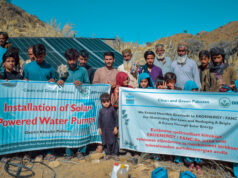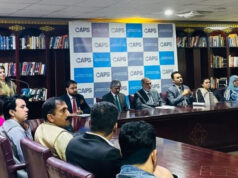Journalists in Pakistan can use the following tips when preparing their applications for Chevening South Asian Journalism Programme Fellowship:
Authenticity is key
There is no ‘right answer’ to any question you’ll be asked. All of our scholars are different, with different backgrounds and goals. Instead of a ‘right’ answer, Chevening wants a true answer – one that is unique to you.
Tell us your Story
Personal examples always help to make your writing genuine. Don’t be afraid to show who you are (your life story, challenges, setbacks) and highlight how your leadership, networking, and learning skills have been relevant throughout your life.
Read Also: Applications Open for Chevening South Asia Journalism Programme
Reference letter
A good reference letter goes a long way! These letters should reflect why you would be a good fit for Chevening. Ask people who know you in both an academic and professional capacity to write a reference letter.
Make it clear how Chevening will help you achieve big things
It’s important to make it clear to your interviewer how the Chevening Scholarship specifically can help you do this, for example by referencing:
- The academic course it will make available to you
- How the Chevening network will help you?
- The government connections that it would give you in your own country.
Set achievable goals
While ‘thinking big’ is an asset in a Chevening application, you need to have a realistic path planned out to get to your desired outcome – even if that path is ambitious or challenging.
Don’t hold back
There is no time for modesty in a Chevening interview. The Chevening team wants to hear about your biggest successes, so don’t hold back on telling us your best stories.
Use the STAR approach. To structure your key examples, you should use the STAR approach, describing:
- Situation
- Task
- Action
- Result
Note: These tips are shared by the British High Commission in Pakistan.
Share your comments!








